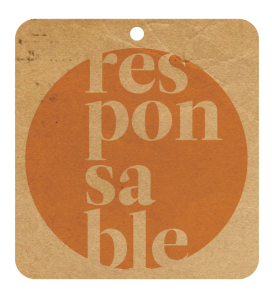Etiqueta Responsable
Communication tool promoted by the +Responsables Association, to explain, in a simple way, the added value of the organization, in its responsible action in the Economic, Social and Environmental areas.
In Basetis we have obtained the Etiqueta Responsable (Responsible Label) granted by the +Responsables Association with the support of the Generalitat de Catalunya and the Barcelona City Council and that recognizes our actions described above.
What is the Responsible Label
The Etiqueta Responsable aims to give value and visibility to organizations and companies that implement management with values in the economic, social and environmental fields, while becoming a tool to promote responsible consumption.
The Etiqueta Responsable certificate makes it easy to make responsible commitments known in a simple and accessible way and can be used in products, services, websites and / or communications, helping to give value and identify companies and organizations by their good practices.
Recognition with the Etiqueta Responsable
One of the actions that we have within our CSR Plan is to adhere to social recognition stamps, so from the Social area we decided to present ourselves to the Etiqueta Responsable. Several measures within the framework of the CSR have added in order to obtain this accreditation. Examples of this are the organization in cross-sectional areas and based on the Teal model, our donation and sponsorship policy, collaborations with third sector entities as well as the performance of pro bono services, the search for suppliers under criteria of responsibility, management Quality certified with ISO 9001, transparency, the Equality Plan, the possibilities in favour of work reconciliation, corporate compliance culture, waste management or the relationship from the trust with those around us.
More information on all these aspects, here.
10 + 1 Responsible Commitments
Economic
- 1. Transparent management of the company and with Social Responsibility criteria.
- 2. The management of suppliers is done with economic, social, environmental and proximity criteria.
- 3. Quality and satisfaction in customer management.
- 4. Transparent and non-fraudulent economic management.
Social
- 5. Non-discrimination and promotion of equal opportunities and diversity.
- 6. Promotion of the reconciliation of personal and work life.
- 7. Communication and promotion of participation.
- 8. Safe work environment for the entire workforce.
- 9. Collaboration with the territory and social initiatives.
Environmental
- 10. Environmental sustainability strategies and actions for the fight against climate change.
- 11. Waste management R + R + R: reduce, recycle and reuse. CSR is a process of constant improvement.
